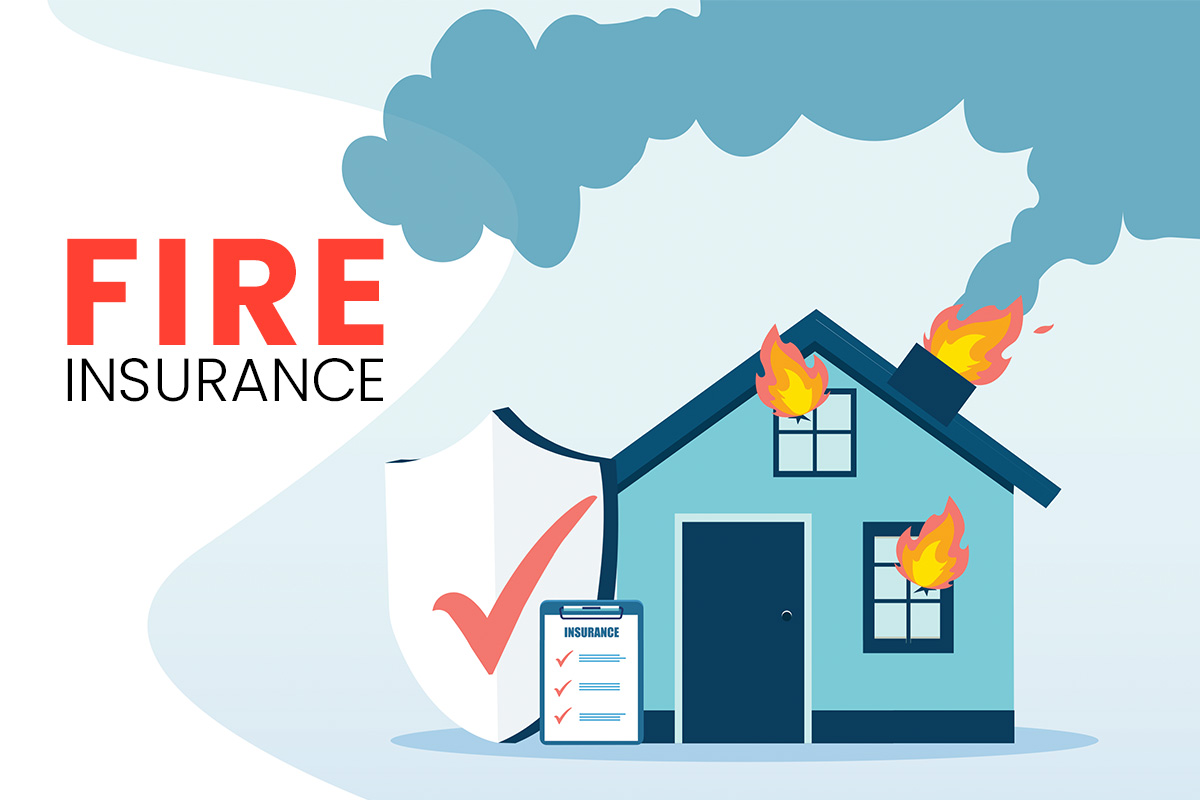Insurance
What Is Fire Insurance | How It Works And Example

Fire insurance is a type of property insurance that protects against damage and losses caused by fire. Most policies include some type of fire protection, however homeowners may be able to obtain additional coverage in the event that their property is lost or damaged due to a fire.
Purchasing supplementary fire coverage helps to cover the cost of replacement, repair, or reconstruction of property that exceeds the maximum set by the property insurance policy. Fire insurance contracts generally include general exclusions for war, nuclear threats, and other related perils. Damage caused by a deliberate fire is typically not covered.
- How Fire Insurance Works
A normal homeowners insurance policy typically includes fire insurance. Homeowners insurance protects policyholders from loss and or damage to their houses and possessions, often known as insured property. Insured property comprises both the interior and exterior of the residence, as well as any valuables stored on the premises.
Policies may also cover injuries sustained while on the property. If you have a mortgage, your lender is likely to require homeowners insurance before approving your loan. Even if it is not required, a homes insurance coverage can provide valuable protection.
The policy may also cover a burst or overflowing water tank or pipes, as well as fires caused by electricity, such as faulty wiring and gas explosions, lightning, and natural disasters. It is also possible to buy fire insurance as a standalone policy.
- Example of Fire Insurance
Most policies cover fires from both inside and outside the home, with coverage limits based on the cause of the fire. Damages are reimbursed on a replacement-cost or actual cash value (ACV) basis. If the home is deemed a total loss, the insurance company may reimburse the current market value of the property.
For example, if a property is insured for $350,000, the contents are typically covered for at least 50% to 70% of the insurance value—or $175,000 to $245,000. Many plans limit the amount of compensation for expensive purchases including paintings, jewelry, gold, and fur coats.
- Special Considerations
Every year, a policyholder should assess the value of their house to determine whether or not their coverage amount should be increased. Keep in mind that you cannot obtain insurance for more than a home’s true value. Insurance firms may provide stand-alone plans for rare, valuable, and irreplaceable things that are not protected under ordinary fire insurance.
Many conventional homeowners insurance policies cover fire damage, including repair costs and other expenses such as relocation.
In some circumstances, you may want more comprehensive coverage. If an insurance policy excludes coverage for fire damage, a homeowner may need to obtain additional fire insurance, especially if the property contains expensive things that are not covered by normal coverage. The insurance company’s responsibility is limited by the policy value rather than the amount of damage or loss suffered by the property owner.
Important: Fire insurance can give supplementary coverage to offset any excess costs associated with replacing or repairing property that exceed the limit established by homeowners insurance.
A fire insurance policy provides supplementary coverage against smoke or water damage caused by a fire and is typically valid for one year. Fire insurance policies on the approach of expiration are typically renewed by the homeowner under the same terms as the original policy.
- Is fire insurance different from homeowners insurance?
Fire insurance covers expenditures associated with a fire, whereas homeowners insurance protects against a variety of other dangers. A homes insurance policy normally covers fire damage, but a standalone fire insurance policy may give more comprehensive coverage.
- What is not covered in fire insurance?
A fire insurance policy does not cover losses caused by deliberate fires. Fire insurance only covers damages caused by a fire, therefore if your property is lost or damaged due to another reason, it is not covered.
- What type of property is covered by fire insurance?
Fire insurance typically covers any fire damage to your home or its contents. This includes property damaged by candle, grease, or electrical fires, among other things. American Family Insurance. “Does Home Insurance Cover Fire?”
The Bottom Line
For many homeowners, the protection provided by a standard homeowners insurance policy will be sufficient to cover losses associated with fires, including losses to the home structure or personal property. Consult a financial advisor to see if a stand-alone fire insurance policy may be useful for your situation.










